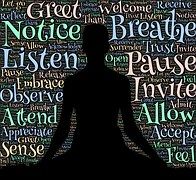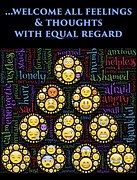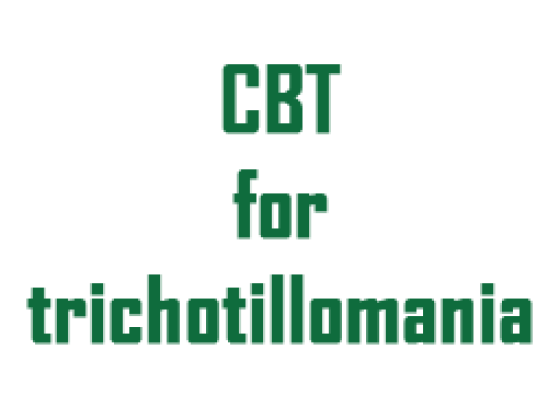Acceptance and Commitment Based Therapy and Trich
Online test
Find out the severity of your symptoms with this free online test
Acceptance and Commitment Therapy (ACT) is a unique psychological intervention that uses acceptance and mindfulness strategies, together with commitment and behavior change strategies. ACT teaches clients to become present in each moment fully as a conscious human being, and based on what the situation affords, changing or persisting in behavior that is in line with chosen life values or goals. Based on Relational Frame Theory, ACT highlights the ways that language reinforces or refutes thoughts and beliefs and how this in turn can be used as apowerful tool to counter the negative thought processes that influence out behaviors. Clients learn how to make healthy contact with thoughts, feelings, memories, and physical sensations that have been feared and avoided. Clients gain the skills to change the context of their thoughts and to accept their thoughts rather than oppose them, but then to develop greater clarity about personal values, and commit behavior change congruent with these values.
How does it work?
Acceptance and Commitment Therapy (ACT) was developed as a behavioral intervention to help people learn strategies to live life more in the present, more focused on important values and goals, and less focused on painful thoughts, feelings and experiences. ACT teaches people how to engage with and overcome painful thoughts and feelings through acceptance and mindfulness techniques, to develop self-compassion and flexibility, and to build life-enhancing patterns of behavior. ACT is not about overcoming pain or fighting emotions; it's about embracing life and feeling everything it has to offer. It offers a way out of suffering by choosing to live a life based on what matters most. There is a thriving research community that examines the basic science underlying ACT and the effectiveness of applying ACT techniques to numerous life problems such as trichotillomania, skin picking, anxiety, depression, PTSD, substance abuse, chronic pain, psychosis, eating problems, and weight management, just to name a few.
ACT and Trich
Trichotillomania is a behavioral problem, and is often referred to as a habit disorder, but it is important to consider the cognitive and emotional components of the behavior. Current treatment recommendations include a traditional behavioral approach (Habit Reversal Training; HRT) combined with an approach that addresses the cognitive and emotional components of the behavior (Acceptance and Commitment Therapy [ACT] or Dialectical Behavior Therapy [DBT]). Current evidence indicates a combination of ACT and HRT is an effective treatment for trichotillomania. Behaviour therapy has the greatest empirical support, but the number of mental health providers familiar with trichotillomania and its treatment is quite small. It is suggested that a blend of traditional behaviour with therapy elements of habit reversal training and stimulus control techniques with the more contemporary behavioural elements of Acceptance and Commitment Therapy (ACT) is the most holistic approach for trichotillomania. This is the appraoch we have taken in developing the online therapy program we will be launching at TrichStop.com soon!
Practical Application
In the first phase of the program, clients are taught skills for stopping and preventing their unconscious pulling episodes. In the second phase, clients are introduced to ACT. Unlike traditional interventions that aim to change type or frequency of pulling-related thoughts or emotions in the hopes of reducing urges to pull hair, our program uses strategies to change the function of these cognitions. Clients are taught to see urges for what they really are and to accept their pulling-related throughts, feelings, and urges wihtout fighting against them. This is accomplished through distancing oneself from your thoughts and changing the context of the thoughts so as to minimize the power of these thoughts. Over the course of approximately 8 weeks, clients learn to be aware of their pulling and warning signals, use self-management strategies for stopping and preventing pulling, stop fighting against their pulling-related urges and thoughts, and work towards increasing their quality of life. Self-monitoring and homework assignments keep clients motivated and engaged throughout
Effectiveness
A randomized trial conducted at the University of Wisconsin-Milwaukee compared a combined Acceptance and Commitment Therapy/Habit Reversal Training (ACT/HRT) to a waitlist control in the treatment of adults with trichotillomania. The results of the study showed that the ACT/HRT group had a significant reduction in hair pulling severity, the number of hairs pulled, significant abatement in avoidance, and measurable reductions in anxiety and depressive symptoms. Reductions generally were maintained at a 3-month follow-up examination. This evidence is just one of a growing number of research that indicates ACT can be very effective in the treatment of trichotillomania and other body-focussed repetitive behaviors (BFRBs).
Online test
Find out the severity of your symptoms with this free online test
Start your journey with TrichStop
Take control of your life and find freedom from hair pulling through professional therapy and evidence-based behavioral techniques.
Start Now



